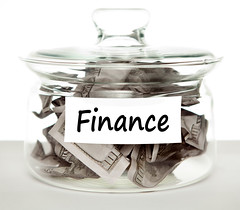Budgeting Your Way Through 2013
In addition to the alcohol-related hangovers you might have suffered during the Christmas and New Year period, you might be suffering from a financial hangover meaning that you’re struggling to pay this month’s bills as well as all of your essential expenditures.
By no means are you on your own by being in this position, that is essential to point out, as there are probably hundreds of others who are looking around for alternative sources of income to get their bills paid on time and to get their bank balance out of the red and back into the black.
On average, British adults owe around £8,000 to various lenders including banks, credit card companies and other lenders; that doesn’t include mortgages and ongoing payments like utility bills, taxes or fuel. However, this debt can be concurred. It might seem like a huge mountain when you sit down and analyse the state of your finances, but it could be reduced to a mole hill in a matter of months with some serious and dedicated plans in place.
The first step is to learn to budget, establishing exactly how much you have, how much you owe and how much you NEED to spend each month – this is vastly different to how much you DO spend incidentally. The next step is to work out when these bills need to be paid and how long at your current rate it will take you until the debts are completely paid off and out of your life.
A common problem arises, however, when people skip the “establishing exactly how much you have” part of the previous statement. Rather than working out how much is in their account first, they plan how much they have to spend and, well, spend it. This can actually make your financial situation worse. By working out what you have and subtracting your essential payments, you can then work out if you can afford to pay the full amount on the latest card statement, whether you need a payday loan to cover a certain bill, (visit monkeydosh to find out more), and where you need to find extra cash from, i.e. cutting certain expenses this month.
Saving just a small amount could make a huge difference in the long-term, especially if you get into the swing of budgeting, learning a little each time and establishing where your unnecessary payments lie. It’s only once you start cutting costs each month that you start to realize just how much money you were pouring down the drain in terms of memberships to places you don’t attend, downloading music or eBooks that you won’t listen to or read, or paying taxes that you don’t need to be paying!
Category: Budget







